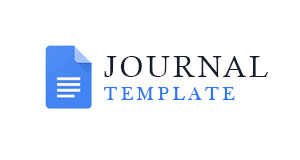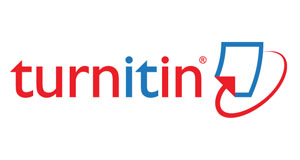How To Enhance Firm Value In The Jakarta Islamic Index (Jii) Through Profitability, Csr And Gcg
Abstract
The company's profitability will reflect the company's financial performance. Good financial performance can increase the value of the company, which will be reflected in the market price of its shares and increase the prosperity of shareholders (stakeholders). Profitability is also a factor that makes management free and flexible in disclosing corporate social responsibility to shareholders. Thus, the higher the level of company profitability, the greater the disclosure of information. So, this study intends to see how profitability affects firm value and whether corporate social responsibility and good corporate governance effectively moderate profitability's effect on manufacturing companies’ value in the Jakarta Islamic Index (JII). Therefore, this study is important and serves as material for investors and potential investors to consider and reference in selecting companies. Various theories support this study, as the grand theory is the agency theory and the signaling theory. The middle theory of this research is contract theory, and the applied theory is firm value theory. This theory is to measure the company's selling value or growth value for shareholders, the company's value, which will be reflected in the market price of its shares. This research was conducted using a quantitative method, which will be carried out in 2021 at a manufacturing company registered on the Jakarta Islamic Index (JII). The sampling technique used was purposive sampling, with twenty-four companies listed on the Jakarta Islamic Index (JII). Considering that the model in this study is a causality model for several manufacturing companies, to test the hypothesis, cross-sectional data is used with the structural equation modeling (SEM) approach using the partial least squares program (PLS 4.0). The results of the profitability direct effect test do not directly affect firm value; the direct effect test results of CSR moderation do not directly affect firm value; and so do the GCG direct effect test results, which do not affect firm value.
Keywords
Full Text:
PDFReferences
Akmalia, A., Dio, K., & Hesty, N. (2017). Pengaruh Kinerja Keuangan Terhadap Nilai Perusahaan Dengan Corporate Social Responsibility Dan Good Corporate Governance Sebagai Variabel Pemoderasi (Studi Empiris pada Perusahaan Manufaktur di Bursa Efek Indonesia Periode 2010-2015). Jurnal Manajemen Bisnis UMY, 8(2). https://journal.umy.ac.id/index.php/mb/article/view/3947/3249
Buallay, A., Hamdan, A., & Zureigat, Q. (2017). Corporate Governance and Firm Performance: Evidence from Saudi Arabia. Australasian Accounting, Business and Finance Journal, 11(1), 78–98. https://doi.org/10.14453/aabfj.v11i1.6
Cahyani, U. E., Ardiansyah, M., & Sunaryati, S. (2020). Islamic Social Reporting and Financial Distress In List of Sharia Securities. IQTISHADIA, 13(2), 157. https://doi.org/10.21043/iqtishadia.v13i2.7756
Enaliaa, F. & Mustaruddina. (2021). Analisis Pengaruh Profitabilitas, Struktur Modal Dan Likuiditas Terhadap Nilai Perusahaan Dengan Ukuran Perusahaan Sebagai Variabel Moderasi. Proceeding Seminar Bisnis.
V. Funawati, R. & Kurnia. (2017). Pengaruh Profitabilitas Terhadap Nilai Perusahaan Dengan Corporate Social Responsibility Sebagai Variabel Pemoderasi. Jurnal Ilmu Dan Riset Akuntansi, 6(11).
Hair, J. F. (2019). Multivariate data analysis (Eighth edition). Cengage. Han, Z., Niyato, D., Saad, W., & Başar, T. (2019). Game Theory for Next Generation Wireless and Communication Networks: Modeling, Analysis, and Design (1st ed.). Cambridge University Press. https://www.cambridge.org/core/product/identifier/9781108277402/type/book
Harahap, D. (2014). Analisis Stabilitas Dinar emas dan Dolar AS dalam Denominasi Rupiah. Al-Iqtishad: Jurnal Ilmu Ekonomi Syariah, 6(2), 269–282. https://doi.org/10.15408/aiq.v6i2.1235
Hasibuan, A. N. (2022). The Role of Company Characteristics in the Quality of Financial Reporting in Indonesian. Jurnal Ilmiah Peuradeun, 10(1), 1. https://doi.org/10.26811/peuradeun.v10i1.666
Itsnaini, H. M., & Subardjo, A. (2017). Pengaruh Profitabilitas dan Solvabilitas Terhadap Nilai Perusahaan Yang Dimoderasi Corporate Social Responsibility. Jurnal Ilmu Dan Riset Akuntansi, 6(6). http://jurnalmahasiswa.stiesia.ac.id/index.php/jira/article/view/490/501
Jizi, M., Nehme, R., & Salama, A. (2016). Do social responsibility disclosures show improvements on stock price? The Journal of Developing Areas, 50(2), 77–95. https://doi.org/10.1353/jda.2016.0075
Kamaliah, K. (2020). Disclosure of corporate social responsibility (CSR) and its implications on company value as a result of the impact of corporate governance and profitability. International Journal of Law and Management, 62(4), 339–354. https://doi.org/10.1108/IJLMA-08-2017-0197
Kirmani, A., & Rao, A. R. (2000). No Pain, No Gain: A Critical Review of the Literature on Signaling Unobservable Product Quality. Journal of Marketing, 64(2), 66–79. https://doi.org/10.1509/jmkg.64.2.66.18000
Kurnianto, B. T. (2017). Dampak Sosial Ekonomi Masyarakat Akibat Pengembangan Lingkar Wilis Di Kabupaten Tulungagung.
Lubis, R., Khairun Nasirin, W., & Nasution, A. A. (2023). Nexus Between Foreign Direct Investment, Islamic Financial Performance and Economic Growth with Economic Freedom as Moderating Variable. International Journal of Islamic Business and Economics (IJIBEC), 7(1), 49–63. https://doi.org/10.28918/ijibec.v7i1.6920
Luthan, E., Rizki, S. A., & Edmawati, S. D. (2018). Pengaruh Pengungkapan Tanggung Jawab Sosial Perusahaan Terhadap Kinerja Keuangan. Ekuitas (Jurnal Ekonomi Dan Keuangan), 1(2), 204–219. https://doi.org/10.24034/j25485024.y2017.v1.i2.2754
McMillen, M. J. T. (2011). Islamic Capital Markets: Market Developments and Conceptual Evolution in the First Thirteen Years. SSRN Electronic Journal. https://doi.org/10.2139/ssrn.1781112
Moloi, T., & Marwala, T. (2020). The Agency Theory. In T. Moloi & T. Marwala, Artificial Intelligence in Economics and Finance Theories (pp. 95–102). Springer International Publishing. http://link.springer.com/10.1007/978-3-030-42962-1_11
Muda, I., & Hasibuan, A. N. (2018). Public Discovery of the Concept of Time Value ofMoney with Economic Value of Time. In Emerald Reach Proceedings Series (Vol. 1, pp. 251–257). Emerald Publishing Limited. https://doi.org/10.1108/978-1-78756-793-1-00050
Purwaningsih, N. K. I., & Wirajaya, I. G. A. (2014). Pengaruh Kinerja Pada Nilai Perusahaan Dengan Corporate Social Responsibilty Sebagai Variabel Pemoderasi. E-Jurnal Akuntansi Universitas Udayana, 7(3).
Putra Setyawan, N. (2016). Pengaruh Profitabilitas, Solvabilitas, Ukuran Perusahaan Dan Likuiditas Terhadap Nilai Perusahaan Pada Perusahaan Manufaktur Di Indonesia Periode Tahun 2011-2015.
Dinus, 3. Rahayu, M., & Bida, S. (2018). Faktor-Faktor Yang Mempengaruhi Nilai Perusahaan. Ikhrait-Humaniora, 2(2). Singh, K. (2007). Quantitative social research methods. Sage Publications.
Susilo, A., Sulastri, S., & Isnurhadi, I. (2018). Good Corporate Governance, Risiko Bisnis Dan Kinerja Keuangan Terhadap Nilai Perusahaan. Jurnal Analisis Bisnis Ekonomi, 16(1), 63–72. https://doi.org/10.31603/bisnisekonomi.v16i1.2132
Tumanan, N. & Dyah Ratnawati. (2021). Pengaruh Likuiditas, Profitabilitas, Leverage Terhadap Nilai Perusahaan, CSR Sebagai Pemoderasi. E-Bisnis : Jurnal Ilmiah Ekonomi Dan Bisnis, 14(1), 123–136. https://doi.org/10.51903/e-bisnis.v14i1.380
Wahyuni, W., A P, I. N. N., & Hidayati, S. A. (2018). Pengaruh Profitabilitas Terhadap Nilai Perusahaan Dengan Pengungkapan Corporate Social Responsibility (CSR) Sebagai Variabel Pemoderasi Studi Empiris Pada Perusahaan Pertambangan yang Terdaftar di Jakarta Islamic Index Periode 2010—2017. JMM Unram - Master Of Management Journal, 7(2). https://doi.org/10.29303/jmm.v7i2.319
Widiastuti, H., Utami, E. R., & Handoko, R. (2018). Pengaruh Ukuran Perusahaan, Tipe Industri, Growth, Dan Media Exposure Terhadap Pengungkapan Tanggung Jawab Sosial Perusahaan (Studi Empiris pada Perusahaan yang Terdaftar di Bursa Efek Indonesia Tahun 2014-2015). Riset Akuntansi Dan Keuangan Indonesia, 3(2), 107–117. https://doi.org/10.23917/reaksi.v3i2.6745
Widyaningsih, D., Susilowati, H., & Andriana, M. (2022). Pengaruh Profitabilitas, Leverage, Firm Size Terhadap Nilai Perusahaan Dengan Pengungkapan Csr Dan Gcg Sebagai Variabel Moderating. Among Makarti, 15(3). https://doi.org/10.52353/ama.v15i3.303
Yulianti, E., Hermuningsih, S., & Sari, P. P. (2022). Pengaruh Struktur Modal, Likuiditas, Ukuran Perusahaan, Dan Profitabilitas Terhadap Nilai Perusahaan. ECOBISMA (Jurnal Ekonomi, Bisnis Dan Manajemen), 9(1), 89–101. https://doi.org/10.36987/ecobi.v9i1.2269
Yuni, L. W. (2022). Pengaruh profitabilitas terhadap nilai perusahaan dengan kebijakan deviden sebagai mediasi. Jurnal Cendekia Keuangan, 1(1), 1. https://doi.org/10.32503/jck.v1i1.2192
DOI: https://doi.org/10.24952/tijaroh.v9i2.8187
Refbacks
- There are currently no refbacks.
Copyright (c) 2023 At-tijaroh: Jurnal Ilmu Manajemen dan Bisnis Islam

This work is licensed under a Creative Commons Attribution-ShareAlike 4.0 International License.








